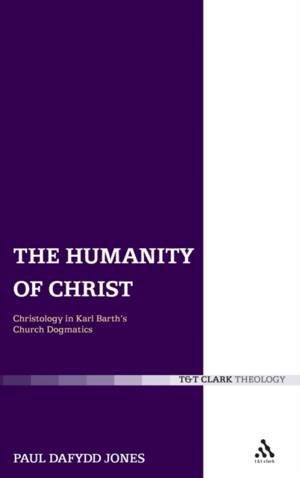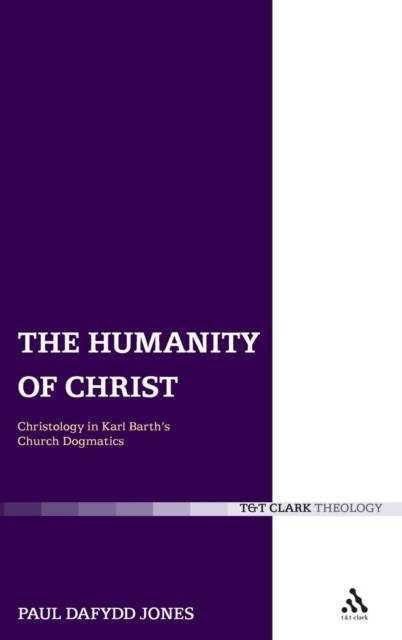
- Afhalen na 1 uur in een winkel met voorraad
- Gratis thuislevering in België vanaf € 30
- Ruim aanbod met 7 miljoen producten
- Afhalen na 1 uur in een winkel met voorraad
- Gratis thuislevering in België vanaf € 30
- Ruim aanbod met 7 miljoen producten
Zoeken
€ 339,45
+ 678 punten
Uitvoering
Omschrijving
Drawing on the best English and German language scholarship to date, this book offers a novel interpretation of Barth's mature Christology. Examining the entirety of the Dogmatics, it provides a nuanced analysis of Barth's treatment of the Chalcedonian Definition, the enhypostasis/anhypostasis pairing, and various Protestant scholastic Christological distinctions; an examination of the co-inherence of Barth's doctrines of God and Christ, which contributes to current debates about Barth's doctrine of election; and a lengthy account of the Christology of Church Dogmatics IV that foregrounds Barth's understanding of Christ's human involvement in the drama of reconciliation.
Throughout the text, the author shows convincingly that Barth's emphasis on Christ's divinity goes hand-in-hand with a dogmatically rich and often startling account of Christ's humanity. The text does not confine itself to the Church Dogmatics. It also situates Barth in the context of the wider Christian tradition and modern western philosophy of religion. Thus Barth is set in conversation with a wide range of thinkers, including Anselm of Canterbury, Martin Luther, John Calvin, Friedrich Schleiermacher, G. W. F. Hegel, Gottfried Thomasius, and Harry Frankfurt. In addition, the text makes a number of constructive gestures, showing a particular interest in feminist and liberationist trajectories of thought. The final chapter considers the standing of Barth's Christology today and its pertinence for theological ethics and political theology.
Throughout the text, the author shows convincingly that Barth's emphasis on Christ's divinity goes hand-in-hand with a dogmatically rich and often startling account of Christ's humanity. The text does not confine itself to the Church Dogmatics. It also situates Barth in the context of the wider Christian tradition and modern western philosophy of religion. Thus Barth is set in conversation with a wide range of thinkers, including Anselm of Canterbury, Martin Luther, John Calvin, Friedrich Schleiermacher, G. W. F. Hegel, Gottfried Thomasius, and Harry Frankfurt. In addition, the text makes a number of constructive gestures, showing a particular interest in feminist and liberationist trajectories of thought. The final chapter considers the standing of Barth's Christology today and its pertinence for theological ethics and political theology.
Specificaties
Betrokkenen
- Auteur(s):
- Uitgeverij:
Inhoud
- Aantal bladzijden:
- 304
- Taal:
- Engels
- Reeks:
Eigenschappen
- Productcode (EAN):
- 9780567033215
- Verschijningsdatum:
- 1/11/2008
- Uitvoering:
- Hardcover
- Formaat:
- Ongenaaid / garenloos gebonden
- Afmetingen:
- 152 mm x 234 mm
- Gewicht:
- 598 g

Alleen bij Standaard Boekhandel
+ 678 punten op je klantenkaart van Standaard Boekhandel
Beoordelingen
We publiceren alleen reviews die voldoen aan de voorwaarden voor reviews. Bekijk onze voorwaarden voor reviews.







